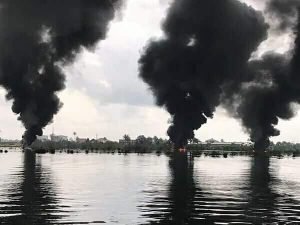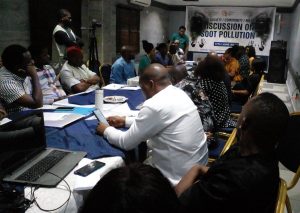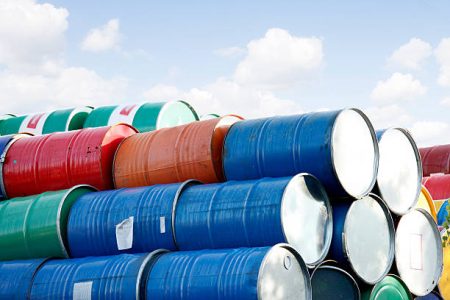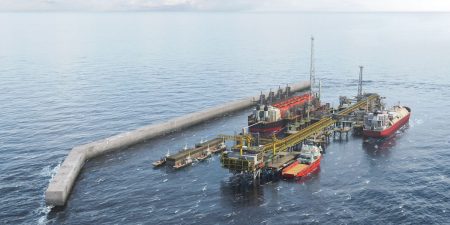
Mkpoikana Udoma
Port Harcourt — The Corporate Accountability and Public Participation Africa, CAPPA, has tasked civil society and community groups to explore collaboration towards ending the menace of hydrocarbon soot in Port Harcourt and other parts of the Niger Delta region.
CAPPA regretted that the petroleum industry and extractive activities in the country was riddled with impunity and accountability to the people.
Director of Programmes, CAPPA, Mr Philip Jakpor, at a One-day Civil Society-Communities-Media Discussion on Soot Pollution in Port Harcourt, noted that soot which became noticeable seven years ago, has been found to be associated with both legal and illegal refining activities.

Jakpor said the Discussion was imperative in order for the media, civil society and communities to work collaboratively to address the soot menace in Rivers State, while terming as false narratives the causes of soot pollution which excludes gas flaring and focuses only on illegal refineries.
He emphasised on the need for the government to tackle the soot menace for the health and safety of residents of Rivers State as it also affects other states in the Niger Delta region.
“The dangers of soot pollution came to limelight seven years ago when residents of Port Harcourt and environs started noticing thick smog in the
atmosphere. The stains later found to be soot coated everything in the open space from roots tops, top of cars, cloths hung outside, and even penetrating the surface of appliances and floors of homes.
“But its impacts were not only the smog, poor visibility, or coating of the environment; over time, residents inhaling the toxic dust started experiencing health challenges. Findings showed that soot is associated with both legal and illegal refining activities.
“Some of the intermediate measure taken by Government was to halt the destruction of illegal refineries by open burning. But the practice is still ongoing, and the illegal gas flaring has not stopped.
“Such is the impunity and pervasiveness of the fossil fuels industry and extractive activities without responsibility and accountability to the people.
“Surrounding states like Bayelsa and Delta where gas is flared are now also experiencing similar incidents of soot pollution. In order words, in addition to the pollution of rivers, streams and farmlands, in addition to the climate impacts communities are already experiencing, the air the people breathe is also being fouled.”
On her part, the Executive Director of Kebetkache Women Development Center, Emem Okon, blame the menace of soot on security agents who deliberately set fire on seized petroleum products.
Okon also advocated that the issue of soot menace should be tackled holistically and not only from the prism of artisanal refineries, adding that home grown technology and ideas should be explored to tackle the pollution instead of criminalizing everything local.
Also, the Executive Director of We The People, Mr Ken Henshaw, regretted that the government sees gas flaring as an economic loss and not as an health hazard, maintaining that the Petroleum Industry Act has failed to protect the interest of impacted communities in the Niger Delta.
“The PIA was an opportunity for us to address this problem, but the PIA failed woefully in addressing the problems. So, rather than seeks strategies to better protect the complex matrix of pipelines across the swamp creeks and rivers of the Niger Delta region, what the PIA itself does is to conclude that communities are the ones stealing crude oil.
“If it is agreed that oil theft is a complex business with international finance, so why do you now put the responsibility of protecting oil installation from armed criminals on the local people of host communities? Where armed security operatives, JTF, civil defence, Navy, Army have failed in securing oil facilities, is it armedless locals that will succeed?
“This is a continuation of the fights of the Nigerian state in collaboration with oil companies against the local people of the region. The PIA has emerged now as an instrument of oppression of our people. And what we are going to see consistently, year in year out, most communities in the Niger Delta will get no benefit from the PIA.”
Follow us on twitter



